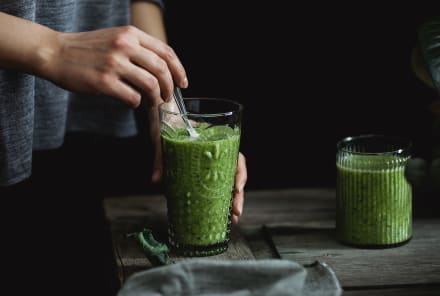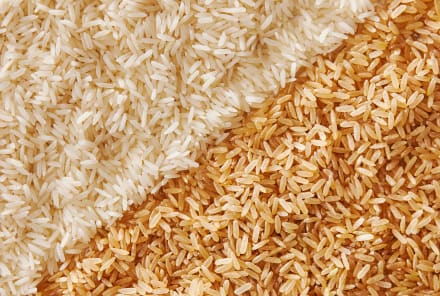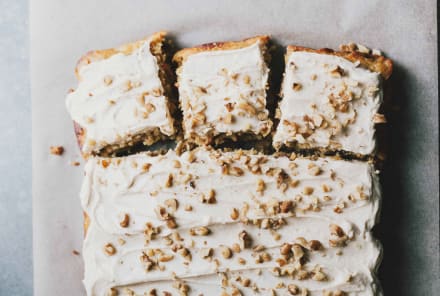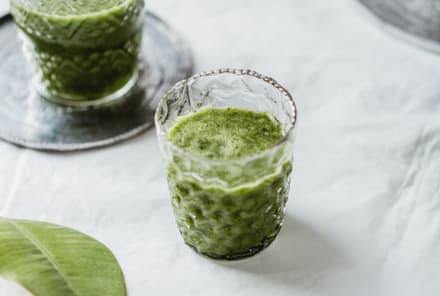Advertisement
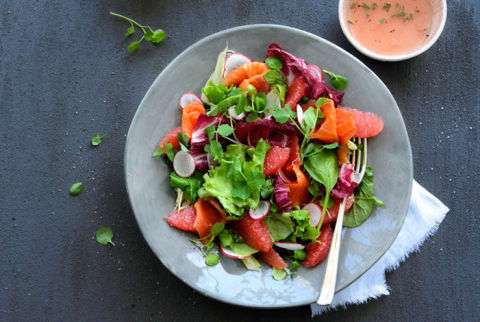
Fat can be your best friend or your worst enemy. Good fats (your best friend) are fats that exist as nature intended them and are unrefined.
Bad fats — the refined fats — include fats from processed vegetable oils like corn oil and sunflower oil.
Saturated fat has actually been wrongly demonized. In 2010, a meta-analysis involving more than 300,000 individuals found no significant evidence that dietary saturated fat is associated with an increased risk of coronary heart disease or cardiovascular disease.
Fatty acids are among the most crucial molecules that determine your brain's integrity and ability to perform. Ideally, the ratio for optimal intake of omega-6 to omega-3 should be 2:1, but in our typical fast-food diet, the ratio is skewed to 16:1 or sometimes even 50:1, which can create inflammation, etc.
Simply eating fatty fish like salmon or tuna at least two times a week and significantly lowering fat intake from processed vegetable oils like sunflower, corn, and soy oil can solve this issue. If you don't eat fish, supplement your diet with krill oil, which is a highly concentrated source of omega-3.
To get the host of tremendous benefits of eating unrefined fats, make sure you include these 10 foods in your diet almost daily:
1. Free-range organic whole eggs
I love the scene in the movie Rocky when Sylvester Stallone breaks six whole raw eggs into a jar and drinks it in one go! Sadly, in the last decade or so, egg yolks have been criticized and condemned severely.
Eggs are tasty as well as nutritious. Whole eggs contain about 6 grams of high-quality protein. Eggs are also a rich source of vitamins—including A, E, and K—and a range of B vitamins, such as B12 (for energy), riboflavin, and folic acid.
Eggs also contain all eight essential amino acids needed for optimal muscle recovery and for using valuable minerals like calcium, zinc, and iron more efficiently.
Worried about the yolk? Eggs do contain cholesterol, but it's now generally accepted that dietary cholesterol doesn't raise blood cholesterol levels1.
2. Avocados
An avocado is a fruit unlike any other because it has more healthy fats than carbohydrates! About 80 percent of an avocado’s calories are from fat, mostly MUFAs (monounsaturated fatty acids), which have a host of benefits, including reducing inflammation, among others.
Avocados are also loaded with vitamins K, C, B, and E and lots of fiber. With so many benefits, it’s hard not to include them in one's diet!
3. Walnuts
Walnuts contain vitamin E, folate, omega-3 fatty acids (ALA), and antioxidants. Research shows that eating walnuts can support brain health2, reduce oxidative stress, and reduce the risk of cardiovascular disease.
4. Almonds
Almonds are my favorite nut — you can always find them in my travel bag. Eating a handful of almonds can satisfy you for at least a few hours, making it easier to avoid eating unhealthy foods and increasing the chance of losing weight successfully.
Almonds are loaded with antioxidants, which are largely concentrated in the brown layer of the skin. Don’t peel off the skin!
5. Fatty fish
Salmon is packed with the goodness of omega-3s, the fatty acid that reduces inflammation and may help lower risk of chronic diseases3 such as heart disease, cancer, and arthritis.
Just limit your consumption of farm-raised fishes, as their contaminant levels (methylmercury and PCBs) are higher than wild-water species. If you eat out, many restaurants mention on their menus whether their fish is wild caught, so look for that, or simply ask the chef if you have any doubts.
6. Ghee
Ghee, a form of clarified butter, has immense benefits. It’s a staple in Indian households as a main cooking oil.
Ghee is very stable even at high temperatures and doesn't go rancid. It’s rich in vitamins A and E, if it’s sourced from grass-fed cows. Ghee is also rich in butyric acid, a short-chain fatty acid that can decrease inflammation and help improve digestion.
7. Coconut oil and other coconut products
Coconut is a superfood for sure. It’s mostly lauric acid, a saturated fatty acid that's antimicrobial, antiviral, and antibacterial.
I cook my eggs in coconut oil and have increased my consumption of coconut to a few hundred calories a day, and my health has never been better.
8. Krill oil
Krill, or "okiami" as the Japanese call it, are small, shrimp-like creatures that have been a cherished food source in Asia since the 19th century or earlier.
It also contains astaxanthin, a marine-source flavonoid that could make the antioxidants more bioavailable.
9. Whole cow’s milk
Yes, you read it right! Consume whole, full-fat cow’s milk and milk products. I recommend a generous amount of healthy fat, which can increase your testosterone and growth hormones and keep you optimally healthy.
Raw cow’s milk has CLA, a powerful immune enhancer. CLA can counteract mitochondrial dysfunction and enhance antioxidant capacity, and as a result, improve muscle mass and strength.
Yogurt and buttermilk (called lassi in India) derived from whole milk also has healthy probiotics.
10. Olive oil
I pour olive oil over my salads and pastas. Opt for extra-virgin olive oil, which should be cloudy (cloudiness indicates that it hasn't been filtered) and have a golden yellow color.
Olive oil is the cornerstone of the Mediterranean diet and is an essential nutritional mainstay for cultures where people live the longest. Benefits of olive oil include reduced risk of coronary disease and prevention of cancers.
Olive oil shouldn't be used for cooking at high temperatures, as it oxidizes quicker than other oils.
Watch Next
Enjoy some of our favorite clips from classes
Enjoy some of our favorite clips from classes
What Is Meditation?
Mindfulness/Spirituality | Light Watkins
Box Breathing
Mindfulness/Spirituality | Gwen Dittmar
What Breathwork Can Address
Mindfulness/Spirituality | Gwen Dittmar
The 8 Limbs of Yoga - What is Asana?
Yoga | Caley Alyssa
Two Standing Postures to Open Up Tight Hips
Yoga | Caley Alyssa
How Plants Can Optimize Athletic Performance
Nutrition | Rich Roll
What to Eat Before a Workout
Nutrition | Rich Roll
How Ayurveda Helps Us Navigate Modern Life
Nutrition | Sahara Rose
Messages About Love & Relationships
Love & Relationships | Esther Perel
Love Languages
Love & Relationships | Esther Perel


